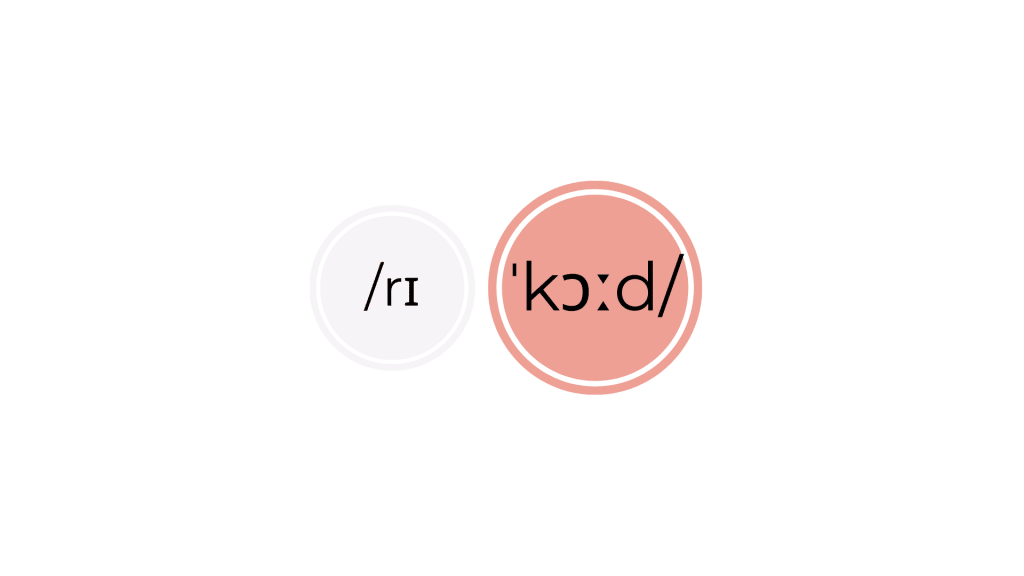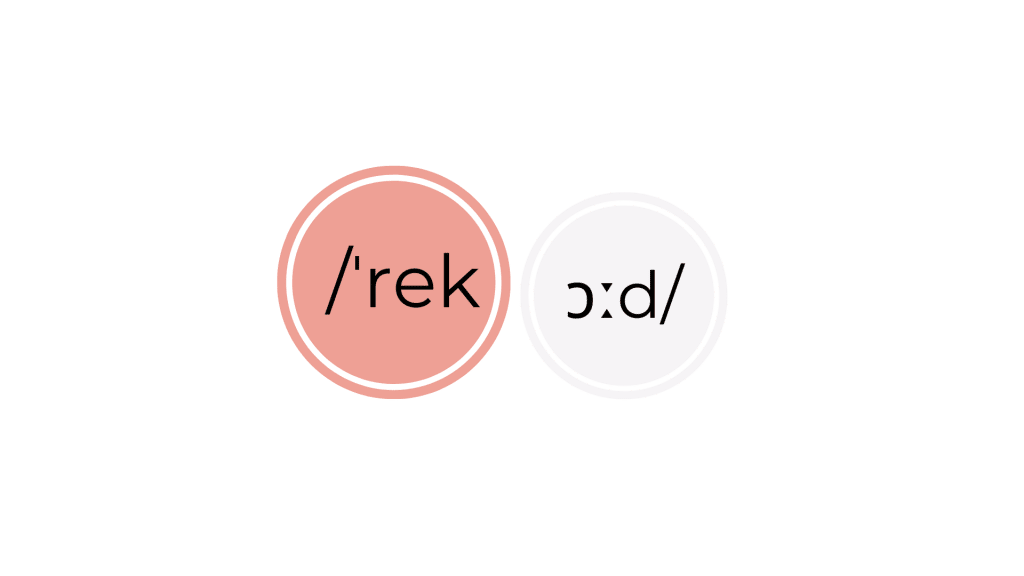English Pronunciation for Mandarin Speakers
English can be very difficult for Mandarin native speakers to produce clearly. Try these Voice Science strategies from a speech pathologist.

Something we hear often when working with Mandarin Chinese native speakers is that despite knowing the ins and outs of the English language, English pronunciation just doesn’t seem to progress at the same pace. Perhaps you’ve been living and working in an English speaking country for most of your life, yet you still hear comments like ‘where are you from?’ and ‘how long have you lived here?’ Whilst these comments may come from good intentions, they can make us feel less confident in our speaking abilities. There’s a Chinese idiom that sums up these experiences brilliantly – ‘雪上加霜’ (xuěshàng-jiāshuāng), which means an added insult to an existing injury!
What sorts of emotions come to mind when it comes to English pronunciation?
Are you…
Enthusiastic?
Bewildered?
Frustrated?
Or perhaps experiencing a whirlwind of mixed feelings?
Fear not! If you’ve been a close follower of Voice Science, you’ll know that we are BIG advocates for multilingualism. We know that the experience of speaking another language brings you a wealth of advantages, so read on to have a peace of mind knowing that English pronunciation can be a piece of cake after all.
#1 You know there is a difference between sounds and spellings in the English language
Let’s take a trip down memory lane… back to the first time you’ve learnt the English alphabet. *cue music* A, B, C, D, E, F, G, H, I, J, K, elemeno P (the ‘LMNOP’ portion of the alphabet that somehow speeds up for no reason 😂)… and it goes on. We’re sure that this sounds all too familiar, in other words, ‘耳熟能詳’ (ěr shú néng xiáng)! You may have thought at one point – ‘that’s easy, there are only 26 letters that I need to know!’
Fun Fact 💡
There are just 26 letters in the English language but there are 44 sounds (also known as ‘phonemes’).
Despite only having a handful of letters in the alphabet, you’ll quickly realise that English speakers somehow betray us when they pronounce the words,
- ‘which’ (pronounced as ‘wich’),
- ‘quiche’ (pronounced as ‘keesh’), and,
- ‘choir’ (pronounced as ‘kwaiuh’)!
This is a golden rule to remember: spellings do not always reflect their pronunciation. In fact, native speakers may not always be aware of the differences between sounds and spellings either too!
#2 You know that words are made up of sounds
Now that you’re aware that spellings may not always be reliable when it comes to pronunciation, the best way to figure out pronunciation is to imagine words as strings of sounds that we make with our mouths. Just like how Mandarin Chinese speakers have the 汉语拼音 (Hànyǔ Pīnyīn) or ㄅㄆㄇㄈ(Bopomofo)/注音符號 (Zhùyīn Fúhào) for Mandarin pronunciation, we can imagine English speaking as producing various combinations of the existing 44 sounds. Then, we’ll be able to decode the exact pronunciation of any word.
Unfortunately, English speakers do not have an equivalent of the 汉语拼音 (Hànyǔ Pīnyīn) or ㄅㄆㄇㄈ(Bopomofo)/注音符號 (Zhùyīn Fúhào) to inform what sounds are needed in words. That’s why, one of the best ways to learn the pronunciation of English speech sounds (or for any language!) is through the International Phonetic Alphabet (IPA). The IPA provides us with a wealth of information about where or how to use our mouth, tongue, and jaw.
When you use the IPA to guide your pronunciation, you’ll be able to learn the key features of English speech sounds in order to produce them as clearly as possible.
For example, when armed with the phonetic symbols from the IPA, you’ll quickly find that the ‘ch’ spellings in the words – ‘which’, ‘quiche’, and ‘choir’ – all represent a different sound.
- Which /wɪtʃ/ (/tʃ/ ‘ch’ sound as in ‘chin’) ‘wich’
- Quiche /kiːʃ/ (/ʃ/ ‘sh’ sound as in ‘ship’) ‘keesh’
- Choir /kwaɪə/ (/k/ ‘k’ sound as in ‘cool’) ‘kwaiuh’
Do these words feel less intimidating now?
Quick reminder: don’t worry, you don’t need to be an expert in IPA in order to make improvements in your English speaking skills. Our expert team of Speech Pathologists at Voice Science will train you with the exact sounds you need, step by step. This ensures that your learning is ‘事半功倍’ (shì bàn gōng bèi) and not ‘事倍功半’ (shì bèi gōng bàn), in other words, achieving twice as much with half the effort! For those who are interested in learning more about the IPA/phonetics, check out our blog post below for more details!
#3 You know the importance of Grammatical Markers
As English language learners, one of the earliest things we learn is grammar. Think of the plural ‘s’ rules (e.g., cats, dogs, badges) and ‘-ed’ past simple tense (e.g., walked, played, wanted) – we’re sure that this has been your bread and butter.
However, the pronunciation of these exact grammatical markers can be different! Accurate pronunciation of these are essential to allow your listener to understand exactly what you mean. Knowing how to apply these in your pronunciation will immediately boost your speaking clarity. Have a look at the table below to see what we mean.
| Words | IPA pronunciation of plurals | IPA pronunciation of words |
| Cats | /s/ | /kæts/ |
| Dogs | /z/ | /dɒɡz/ |
| Badges | /əz/ or /ɪz/ | /bædʒəz/ or /bædʒɪz/ |
| Words | IPA pronunciation of simple past tense | IPA pronunciation of words |
| Walked | /t/ | /wɔːkt/ |
| Played | /d/ | /pleɪd/ |
| Wanted | /əd/ or /ɪd/ | /wɒntəd/ or /wɒntɪd/ |
#4 You have already been using the “schwa” in your speaking
One of the most prevalent sounds in the English language is the… schwa!
The schwa (the IPA symbol: /ǝ/), the one that looks like an upside down ‘e’, is frequently found in unstressed syllables.
For example, you can spot it in words like
- ‘about’ /əbaʊt/ and,
- ‘hidden’ /hɪdən/.
The vowels in many function words (words that serve a purely grammatical purpose) also tend to be reduced to a schwa in phrases/sentences, such as ‘the’ and ‘to’ in the phrase ‘go to the shops’ /ɡəʊ tǝ ðə ʃɒps/. As a Mandarin Chinese speaker, you also use the Schwa in your speaking! Think of the way you pronounce the word ‘文’ in 文章 (meaning ‘article’). When you pronounce it, the vowel in 文 can be pronounced as a schwa (in IPA /wən/). Knowing this, you can apply this common but often missed vowel sound in your English speaking too!
If you’re wondering at this point, ‘how do I know exactly when and where to use the Schwa in English words and sentences?’, our Speech Pathologists have done that work for you!
We use evidence-based methods to systematically equip you with practical pronunciation tools and strategies to identify these in your English speaking. We offer online pronunciation training that is tailored to your specific needs and goals.
#5 You know that how you pronounce words can change their meanings
Mandarin Chinese is a tonal language, which means that native speakers naturally use variations in the pitch of voice to show meaning. For example, there are different word meanings for the same combination of sounds such as ‘mum’ 妈 (mā), ‘numb’ 麻 (má), ‘horse’ 马 (mǎ), ‘scold’ 骂 (mà) and the question particle 吗 (ma). With this in mind, you’ll realise that HOW you pronounce words can be just as important as pronouncing the sounds in words. In linguistics, we call this ‘suprasegmental features’.
Suprasegmental 📚
Also called prosodic feature, in phonetics, is a speech feature such as stress, tone, or word juncture that accompanies or is added over consonants and vowels; these features are not limited to single sounds but often extend over syllables, words, or phrases.
In contrast, English does not have a tonal system. Instead, it relies on stress and intonation patterns to highlight meaning. Let’s have a close look at the word ‘record’ and you’ll quickly know why.
Record (verb) = to store information (e.g., I will record my singing)

Record (noun) = a piece of information or a description of an event that is written or stored (e.g., This winter has been the coldest on record)

Conclusion
Our final thoughts – feel reassured that speaking another language such as Mandarin Chinese is not a roadblock from mastering English pronunciation! Your multilingual skills bring you many advantages that can bolster your English speaking and we hope we’ve convinced you by now.
We’d also like you to know that there is no such thing as a strong accent, and what matters more is your speaking clarity and confidence! That’s why we have a blog post specifically dedicated to all multilingual speakers who have experienced barriers in their speaking and identity, so you can self-advocate the next time someone asks about your background/accent.
Curious for expert instruction and training on English pronunciation so that you can take your speaking skills to the next level? Look no further – our Personalised Pronunciation Audit will get you started to find out exactly what your speaking needs are. There’s a famous Chinese saying ‘千里之行,始于足下’ (Qiānlǐ zhī xíng shǐ yú zúxià), meaning ‘a journey of a thousand miles begins with a single step’. We’d love to assist you on this journey to polish your English speaking!
References
-
Lee, W., & Zee, E. (2003). Standard Chinese (Beijing). Journal of the International Phonetic Association, 33(1), 109-112.
-
Li, F. (2016). Contrastive Study between Pronunciation Chinese L1 and English L2 from the Perspective of Interference Based on Observations in Genuine Teaching Contexts. English Language Teaching, 9(10), 90-100.
-
Liang, E. (2014). Pronunciation of English Consonants, Vowels and Diphthongs of Mandarin-Chinese Speakers. Studies in Literature and Language, 8(1), 62-65. Available from: http://www.cscanada. net/index.php/sll/article/view/j.sll.1923156320140801.4012
-
Phonetics – Suprasegmentals. Encyclopedia Britannica. (2022). Retrieved 10 March 2022, from https://www.britannica.com/science/phonetics/Suprasegmentals.
Your Personalised Pronunciation Audit from Cadenza™
Find Out Exactly How to Progress Your English Speaking Strategically
Ever want an entire roadmap to pronunciation success?
There’s no second guessing if you have a Personalised Pronunciation Audit because we will diagnose and prescribe exactly what your English speaking needs at the moment to move forward.
Your Personalised Pronunciation Audit leads you by the hand.
We will identify which one of the 5 Bottlenecks to Pronunciation Clarity you need to overcome now. It’s simple, clear and clean. It’s fun & engaging.
You can do it right here & right now.

